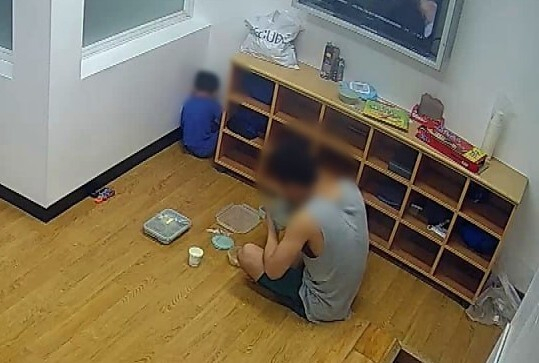
This week, on 19 and 20 October, the UN Human Rights Committee (HRC) will consider the fifth periodic report of the Republic of Korea. Amongst various concerns, numerous NGOs–including the GDP’s partner, the Association for Public Interest Law–have called on the committee to examine the country’s immigration detention practices and policies. Concerns include the detention of children, indefinite detention, the use of physical force in detention facilities, and the detention of asylum seekers in airport facilities.
The detention of children
Currently, there are no specific provisions within the Republic of Korea’s Immigration Act prohibiting the detention of children. Instead, according to Article 4 of the Administrative Rules on the Detention of Aliens, children under the age of 14 can be detained alongside their parents, even if the child themselves is not subject to a detention order.
As one coalition of organisations states in a submission to the committee: “As a result it is common for children and infants to be detained with their parents. For example, in April 2023, a 3-year-old child was detained with his father before they forcibly evicted; in May 2023, a 6-year-old child with a valid visa was detained with a mother who lost her sojourn status after she divorce her husband.” According to the NGOs, 13 children under the age of 3 were detained in 2022.
(The Global Detention Project has long drawn attention to the inherent problems of the de facto detention of children alongside their parents, which can leave children “invisible” to the law, preventing them from accessing basic legal protections that are offered to other detainees. See, for example, our submission to the UN Special Rapporteur on the human rights of migrants, “Immigration Detention of Children and Adequate Reception and Care,” May 2020.)
Although the Republic of Korea’s State Party Report states that the country intends to amend the Immigration Act to prohibit the detention of children under the age of 14, observers in Korea point out that this will still leave children over the age of 14 vulnerable to detention. As such, they recommend that:
- The State Party should amend the Immigration Act to completely prohibit the detention of children.
- The State Party should amend the Immigration Act to refrain from detaining migrant children and their parents or guardians.
- The State Party should amend the Immigration Act to add provisions related to the principle of the best interests of the child, ensuring that the rights of children are considered in all immigration-related decisions.
Indefinite detention
At present, the country’s law does not include an upper limit on the duration of detention, and does not provide for regular examination procedures by independent entities such as the judiciary. However, as the GDP previously reported, the country’s Constitutional Court found this to be unconstitutional in March this year. Nevertheless, as observers in Korea point out in one of their recent UN submissions, “so far the Ministry of Justice has failed to discuss revising the Immigration Act.” It therefore encourages authorities to “revise the current Immigration Act to permit detention only as a last resort for the shortest possible period.”
The use of physical force
In another submission, nine NGOs highlighted reports revealing that authorities continue to use physical force against immigration detainees–despite the government revising its guidelines to protect detainees.
In 2021, the public release of CCTV footage from inside Hwaseong Immigration Detention Centre showed a detainee in excessively tight restraints–known as the “hog-tying” case. After admitting to human rights violations, the government revised its guidelines specifying how immigration detainees should be treated. However, as the NGOs note, “the revised guidelines are themselves concerning, expanding the types of permissible restraints and still permitting officers to tie down a detainee’s limbs. Furthermore, the condition, method, and process for detention in an isolation room and the use of restraints are detailed only in a closed internal regulation that has not been released to the public. As such, monitoring of the application of these regulations is impossible.”
Confined in “departure waiting rooms”
When individuals arrive at an airport and apply for asylum, the applicant should undertake a “referral assessment.” However, the Immigration Act allows authorities to refuse to refer an applicant for this assessment if their application is “incontestably groundless.” According to NGOs, for the last five years, on average, only 44.3% of refugee status applicants were permitted to proceed to the referral assessment.
Once an individual receives a non-referral decision, they must stay within a “departure waiting room” at the airport for the duration of any additional legal process, or until their deportation. Individuals have been held for as long as 14 months. However, despite significant numbers being required to remain in such facilities, the government has not allocated a budget for these rooms–as this submission highlights: “currently only one meal per day is served—an airline inflight meal. For breakfast and dinner, just bread and drinks are served.”
No sleeping facilities are available, leaving detainees forced to sleep on wooden benches–and overcrowding is often an issue. Children are held amongst adults, as no child-specific rooms are available.
The NGOs make the following recommendations:
- The State Party should stop abusing the referral assessment procedure at ports of entry and end long-term detention for asylum seekers at airports. The State Party should ensure the right to apply for refugee status for all applicants.
- The State Party should routinely monitor whether people detained at airports are being detained for shortest period possible. The State Party should ensure applicants are treated in a humane manner.
- The State Party should arrange a separate living facility outside of airports for possible asylum seekers who inevitably will be detained for an extended time at airports.


